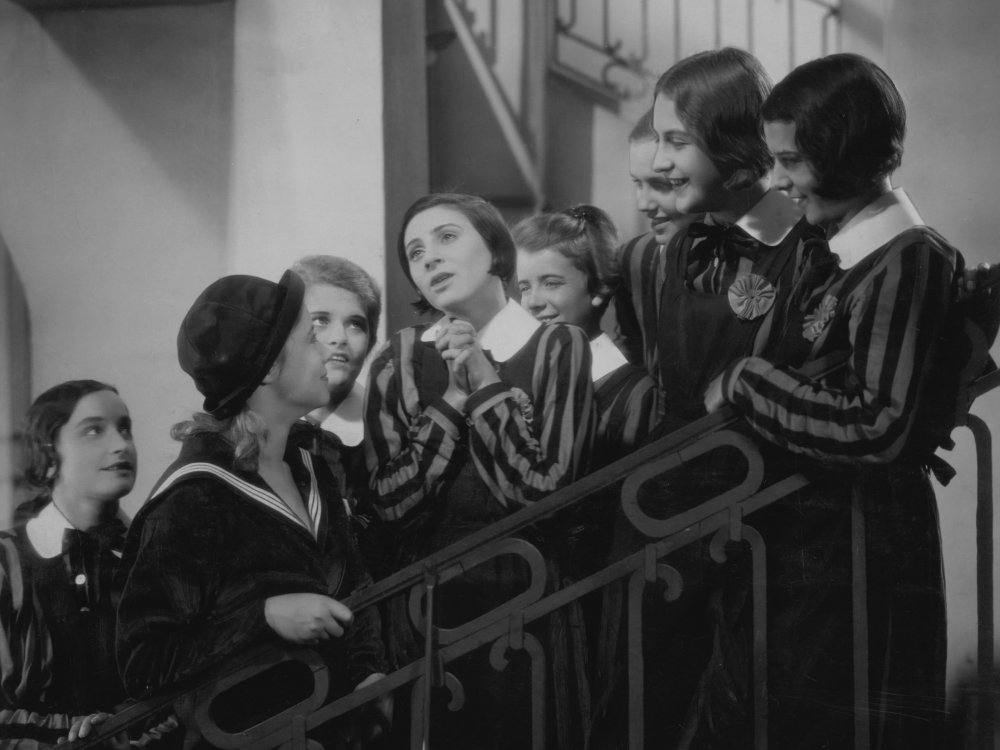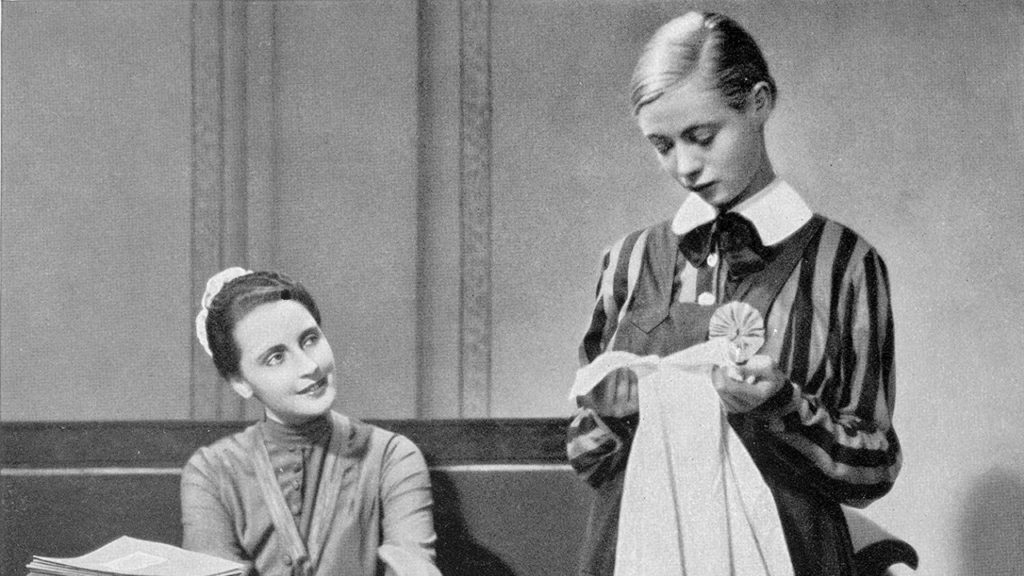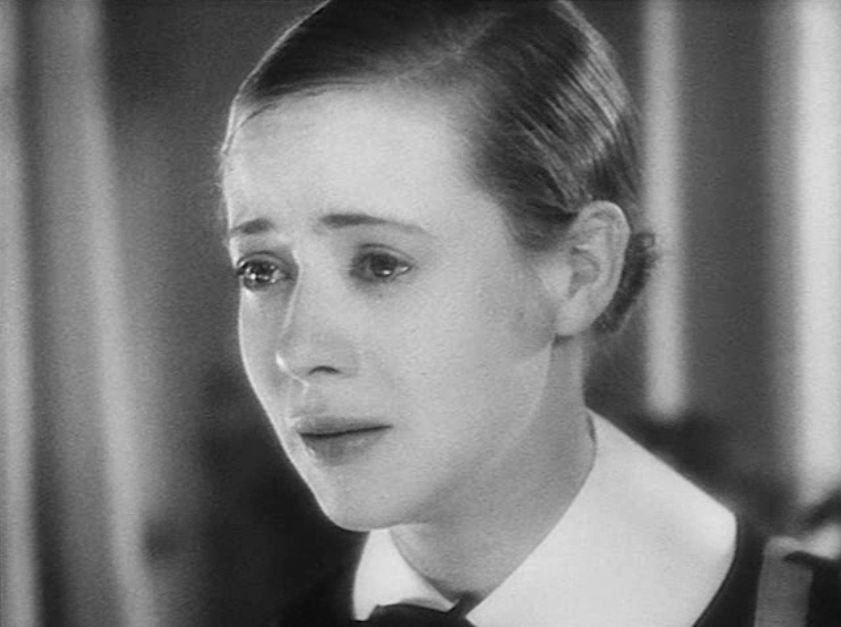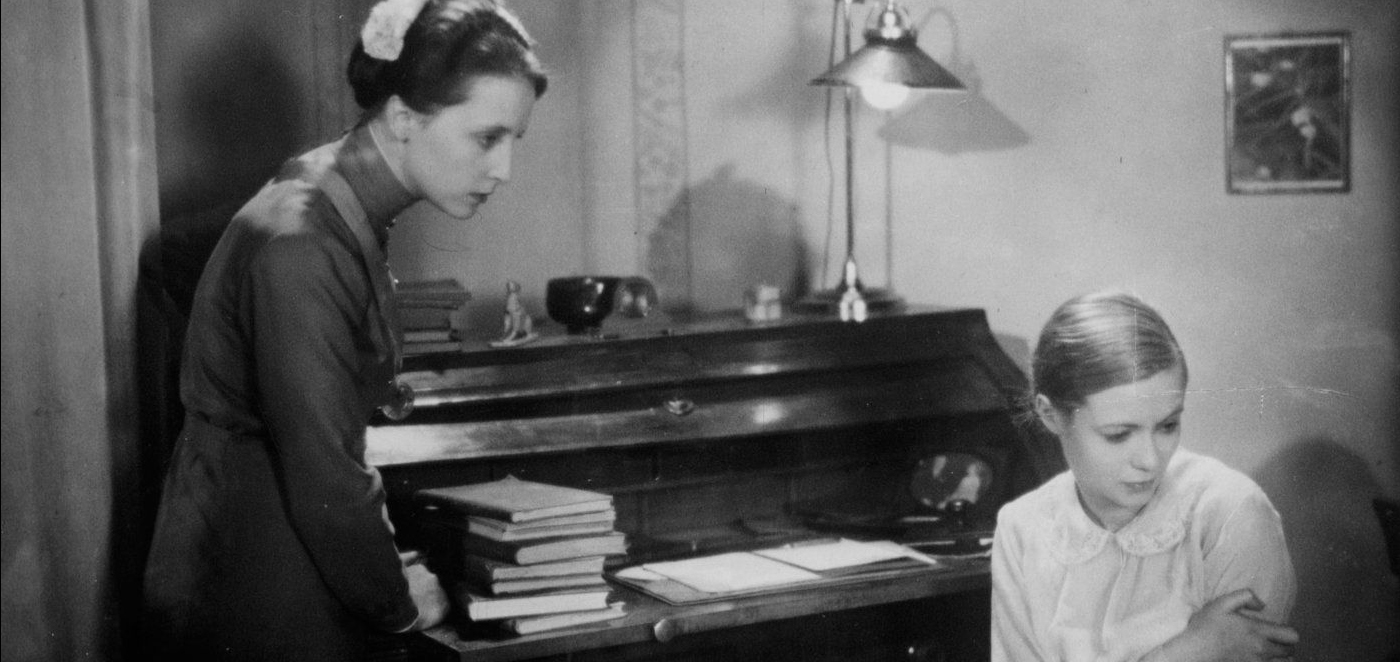Madchen in Uniform was banned by the Nazis. Nothing I can say is a more positive review than that fact.
Madchen in Uniform is a German film from 1931. It takes place at a girls’ boarding school. Manuela, a sensitive new girl arrives at the school. Like many of her classmates, Manuela develops a crush on Fräulein von Bernburg. Unlike the other teachers, Fräulein von Bernburg is compassionate and kind as well as being young and pretty. Despite reservations about her age, Fräulein von Bernburg admits she shares Manuela’s feelings. However, Manuela drunkenly announces Fräulein von Bernburg affection for her in public. This is obviously a really bad move. Madchen in Uniform doesn’t end particularly happily. However, it also doesn’t featuring any dead queer women so shout out for that.

In general, Madchen in Uniform is a really interesting snapshot of depression-era Germany right before the Nazis took hold. You get a feeling of the overarching poverty and hard times that affected the country after the First World War. Additionally, there are already there are signs of overt nationalism. However, it’s obviously a lot more forward-thinking and liberal of a film than those that would be released in Germany just a few years later.
What’s interesting about this relationship is the fact that they’re both women doesn’t seem to be an issue. Maybe it’s specific to the environment of a girl’s school of everyone seems really chill about girls having crushes on female teachers or other students. The problem comes from the fact that Fräulein von Bernburg is a teacher and Manuela not yet 15. And yeah, that is absolutely a more pressing and valid issue for why two people can’t be together. Still, it was really intriguing to see one of the oldest lesbian films ever made have such a nonchalant attitude towards homosexuality.

I’m not going to get after Madchen in Uniform for its core relationship because it’s like, the first lesbian movie ever and it as a different time. However, if I saw this relationship in a modern film, I would not be pleased. At the beginning of the film, Manuela is asked her age. She says she’s 14 and a half. If you’re still adding half years onto your age, you’re too young to be in an adult relationship. And it’s not like Manuela is overly wise beyond her years. She’s moody, depressive and impulsive. Basically, Manuela acts like a teenager. Indeed, Fräulein von Bernburg calls Manuela an emotional little girl at one point. This point is almost immediately before she admits she also has feelings for Manuela. It’s not ideal.
I can’t tell if she’s superposed to be but Fräulein von Bernburg did come off as a bit predatory. Other than her flirtation with Manuela, she’s quite affectionate with all the girls. She offers them hugs and kisses before bed each night. Late in the film, Fräulein von Bernburg comforts another student who wants to run away. After cheering her up,Fräulein von Bernburg sends her away with a light-hearted smack on the ass. I think these actions are supposed to come off as sweet and caring. However, these displays of affection would be spectacularly unacceptable as a way for a teacher to act towards students in 2019.
The absolute star of the film is Hertha Thiele as Manuela. The camera loves her face and she gives an exceptional performance. She portrays emotions blatantly and believably without going into over-the-top acting that we see in early movies as a hangover from stage plays and the silent era. The emotion Hertha Thiele is portraying always reaches her eyes and seems so genuine and devastating.

The pacing in Madchen in Uniform can be a little slow. Like most early films, the director is so enamoured with the simple ability to show moving images on camera that this can take precedence over telling a story. However, the directing and cinematography is really good. You’d expect this from an early film. Back then, almost all of the filmmakers were people who had an understanding of how to make a movie. Certainly the movies from that era that survive to this day tend to be the good ones.
Madchen in Uniform is a really interesting film. I’m totally not qualified to review it because I don’t know enough about the early film era. Still, I’m glad it exists. I’m pretty sure it’s objectively good or, if nothing else, old enough that any other movie buff or critic wouldn’t dare to say anything bad about it anyways. Either way, it’s exciting to see a film from almost 90 years ago with a focus on queer characters. And again, The Nazis banned this film for being decadent and immoral. Unintentionally, that’s the best review and advertisement for the film you could get.
Overall rating: 8.1/10
Other WLW films in similar genres
The all-time oldest WLW films
- The Tomboy (1936)
- Olivia (1951)
- Muchachas de Uniforme (1951)
- No Exit (1954)
Teacher/student relationships


Be First to Comment